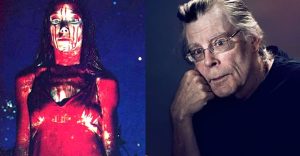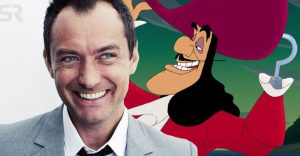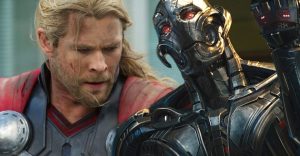10 Questions We Still Have About HBO’s The Undoing

Written by David E. Kelley and directed by Susanne Bier, the sixth and final episode of HBO’s mysterious drama miniseries The Undoing just aired on November 29, 2020. Starring Nicole Kidman and Hugh Grant, the series revolves around a high-profile murder case in New York City, in which a young woman named Elena Alves (Matilda De Angelis) is brutally beaten to death with a sculpting hammer in her art studio.
When Grace Fraser (Kidman) realizes her husband Jonathan is a primary suspect, her mental state begins to deteriorate with panic and paranoia. Although the show recently concluded it’s run, there are still several outstanding questions to ponder.
10 Psychotherapy Theme

The conceit of The Undoing is to highlight the severe psychological slippage that the main character, Grace Fraser, experiences in the wake of her husband being accused of murder. Grace is a rich, highly-successful psychiatrist in Manhattan who is seen working with patients in early episodes, only to have the subplot completely abandoned.
Why was this crucial subplot scrapped more halfway through the show? Grace’s occupational skill as a psychotherapist is never established well enough to make her own mental degradation compelling in the context of her profession.
9 Media Spectacle

One of the biggest questions a viewer must ask is why this particular murder case would incite such spectacular media hysteria. Murders happen every day, yet the death of a young female woman from the Bronx is publicly treated as if it were the OJ Simpson trial. Sadly, this would never happen in reality.
Is it because of the rich and powerful suspect, Jonathan, and his billionaire stepfather Franklin (Donald Sutherland)?
8 Detective Mendoza’s Perjury

Another question that begs to ask is why Detective Joe Mendoza (Edgar Ramirez) willfully lied under oath during the murder trial of Jonathan Fraser? Mendoza knew that the police had CCTV footage of more than one person in the area of Elena’s death at the time of her murder but refused to say so in court.
Was it to protect Grace for some reason? If so, why? Grace was seen strolling alone on camera near the murder scene, but Mendoza failed to disclose such when cross-examined. More head-scratching is how Grace could walk from her Upper East Side apartment all the way to Harlem.
7 Jonathan’s Return To Crime Scene

After six protracted hours, the killer culprit turns out to be the one major suspect all along: Jonathan Fraser. Much of the plot entails Jonathan’s bogus story of having sex with Elena before her death, leaving the scene, only to come back to find her dead.
Why would Jonathan ever return to the scene of a murder he just committed? To cover his tracks? To make his involvement seem less obvious? Even if he never actually returned to the crime scene, why would he even suggest he did so? His DNA was already at the scene of the crime and he made no effort to wipe the evidence upon his return. So why did he return?
6 Poorly Hidden Murder Weapon

Jonathan Fraser was painted as a brilliant pediatric oncologist in the show. But if he was such an intelligent man, why would Jonathan hide the murder weapon so poorly on his own property?
Fraser makes no effort to discard the bloody sculpture hammer after murdering Elena. Instead, it puts it in a brown paper bag and hides it in the outdoor fireplace of his gaudy beach house. Why? Worse yet, when his lawyer finds out about the hammer and admonishes him to get rid of it at once, he continues to harbor the weapon for several days, much to the dismay of his legal team.
5 Henry’s Hideout

Despite the fine performance by Noah Jupe, Henry Fraser isn’t very bright when it comes to helping his father evade a murder wrap. When he finds the bloody murder weapon, Henry not only tampers with the evidence by running the hammer through the dishwasher twice, but he then proceeds to hide the piece of incriminating evidence in his own bedroom.
Why would Henry do this? He claims it was to protect his father, but who in their right mind would go about it in such a dimwitted way?
4 Henry’s Sojourn

Henry has no shortage of head-scratching moments in the series. But one that really needs answering is why, already in the belief that his father is guilty of murder, would he agree to go on a luncheon road trip with Jonathan at the end?
Because he is a kid and he loves his father? Okay, but then why does Henry suddenly acted shocked when Jonathan confesses to the murder in the end? Henry was already so certain his father was guilty that he hid the murder weapon to protect him. Yet he’s suddenly surprised when his father admits to what Henry already knows?
3 Miguel’s Cross-Examination

After given almost zero dialogue for the entire series, why was Miguel asked to testify under oath in Jonathan’s murder trial? Moreover, it is not common practice to have a minor testify before a jury in a murder case of their own parent. It’s downright illegal in most instances.
If Miguel was permitted to testify, why wasn’t he asked to do so earlier? He was the one who found his mother’s dead body, yet is mainly asked to testify as a character witness for his father, Fernando (Ismael Cruz Cordova).
2 Grace’s Testimony

Another looming question to ask regarding The Undoing is why Grace was allowed by her lawyer to testify under oath in the murder trial of her husband? In addition to being an unreliable narrator the entire show, Grace had far too much knowledge about Jonathan to risk her testimony. She also waited an extremely long time to take the stand. Why?
Moreover, why would Jonathan believe Grace would have nothing but glowing things to say about him? Even if she believes he is innocent of murder, she knows he is guilty of infidelity and fathering an illegitimate child with the murder victim.
1 What Was The Point

Given all of the outstanding questions that still loom large, and considering the lackluster twist ending of the show, one must ask what the entire point of the series was in the first place? Was it simply to reunite Big Little Lies scribe David E. Kelley with Nicole Kidman?
Rather than telling a compelling story, the series seemed more intent on deconstructing storytelling itself. Six hours are spent to cover approximately two hours of an actual story, with the primary suspect being guilty all along.
















